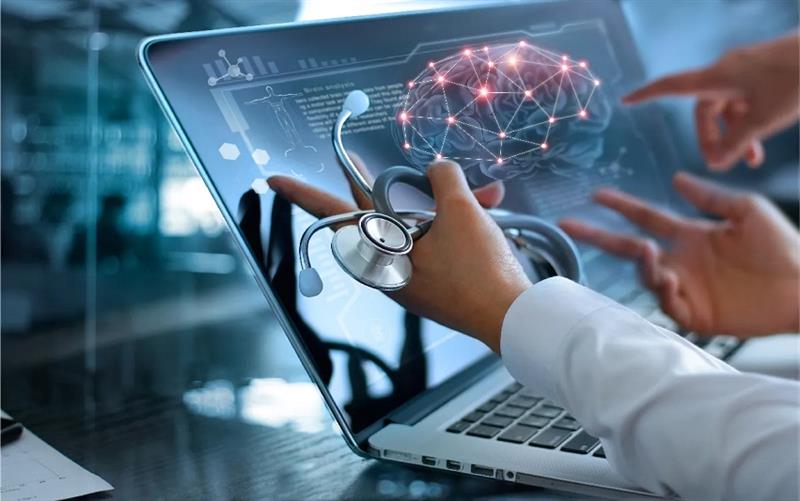
The adoption of advanced software solutions is no longer a luxury but a necessity for healthcare providers aiming to streamline their operations and improve patient care. From EHR systems and practice management software to telemedicine platforms and clinical decision support systems, these technologies are transforming the healthcare landscape. By embracing these innovations, healthcare providers can achieve greater operational efficiency, reduce costs, and ultimately provide better care for their patients.
In the ever-evolving landscape of healthcare, operational efficiency is paramount. As patient volumes increase and regulatory requirements grow more complex, healthcare providers must adopt advanced software solutions to streamline their operations. These technological advancements not only improve patient care but also reduce costs and enhance the overall efficiency of healthcare facilities. In this blog, we will explore how advanced software solutions are transforming healthcare operations and the benefits they bring to the table.
The Importance of Operational Efficiency in Healthcare
Operational efficiency in healthcare is crucial for several reasons:
1. Patient Care: Efficient operations ensure that patients receive timely and accurate care, which is essential for positive health outcomes.
2. Cost Reduction: Streamlined processes help in reducing unnecessary expenses, thereby lowering the overall cost of healthcare delivery.
3. Compliance and Reporting: Advanced software solutions facilitate compliance with regulatory requirements and simplify reporting processes.
4. Resource Management: Efficient operations allow for better management of resources, including staff, equipment, and facilities.
Advanced Software Solutions in Healthcare
1. Electronic Health Records (EHR) Systems
Electronic Health Records (EHR) systems have revolutionized how patient health information is stored, accessed, and shared. They provide a centralized digital repository that allows healthcare providers to access comprehensive patient histories, including medical history, medications, lab results, and more. EHR systems streamline clinical workflows by reducing paperwork, minimizing errors associated with manual record-keeping, and improving care coordination among healthcare teams.
2. Telemedicine Platforms
Telemedicine platforms enable remote healthcare delivery, allowing patients to consult with healthcare providers virtually. Especially valuable during the COVID-19 pandemic, telemedicine has become integral in providing accessible and convenient care. These platforms support video consultations, secure messaging, and remote monitoring, extending healthcare services to patients regardless of geographical barriers. Telemedicine improves patient access to specialists, reduces travel time and costs, and enhances continuity of care.
3. Clinical Decision Support Systems (CDSS)
Clinical Decision Support Systems (CDSS) integrate patient data with clinical knowledge and guidelines to assist healthcare providers in making informed decisions about patient care. These systems analyze patient information in real-time, flagging potential issues, alerting providers about drug interactions, suggesting appropriate treatments, and promoting evidence-based practices. CDSS enhance diagnostic accuracy, reduce medical errors, and improve patient safety by providing timely and relevant clinical insights.
4. Health Information Exchange (HIE) Platforms
Health Information Exchange (HIE) platforms facilitate the secure sharing of patient information across different healthcare organizations and systems. HIEs enable healthcare providers to access critical patient data from other facilities, promoting care coordination, reducing duplicate tests, and improving decision-making. These platforms enhance interoperability between disparate healthcare systems, ensuring seamless communication and continuity of care for patients.
5. Revenue Cycle Management (RCM) Software
Revenue Cycle Management (RCM) software optimizes the financial aspects of healthcare by automating billing, coding, and claims processing. These solutions streamline revenue workflows, improve accuracy in billing and coding practices, accelerate payment cycles, and reduce claim denials. RCM software enhances financial transparency and accountability, helping healthcare organizations achieve operational efficiency and maximize revenue.
6. Patient Engagement Solutions
Patient Engagement Solutions encompass various software tools and platforms designed to empower patients in managing their health. These solutions include patient portals, mobile apps, and remote monitoring devices that enable patients to access their health records, schedule appointments, communicate with healthcare providers, and participate in their care plans. By promoting active patient involvement, these solutions improve health literacy, adherence to treatment plans, and overall patient satisfaction.
7. Inventory Management Systems
Effective inventory management is vital for healthcare facilities to ensure that they have the necessary supplies and equipment when needed. Advanced inventory management systems provide real-time tracking of inventory levels, automate reordering processes, and help in optimizing stock levels, thereby reducing waste and ensuring that critical supplies are always available.
8. Remote Patient Monitoring (RPM) Systems
RPM systems use connected devices and sensors to monitor patients remotely and collect real-time health data outside traditional healthcare settings. These systems track vital signs, medication adherence, and disease progression, enabling proactive interventions and reducing hospital admissions. RPM enhances patient autonomy and quality of life, particularly for chronic disease management and elderly care.
9. Population Health Management Tools
Population Health Management (PHM) tools analyze aggregated patient data to identify trends, manage chronic conditions, and improve overall population health outcomes. These tools integrate data from EHRs, claims records, and other sources to support preventive care initiatives, manage risk factors, and allocate resources effectively.
10. Blockchain Technology
Blockchain technology enhances data security, interoperability, and transparency in healthcare. It enables secure sharing of sensitive health information among stakeholders while maintaining data integrity and protecting against unauthorized access or tampering. Blockchain can streamline processes such as clinical trials, supply chain management, and patient consent management.